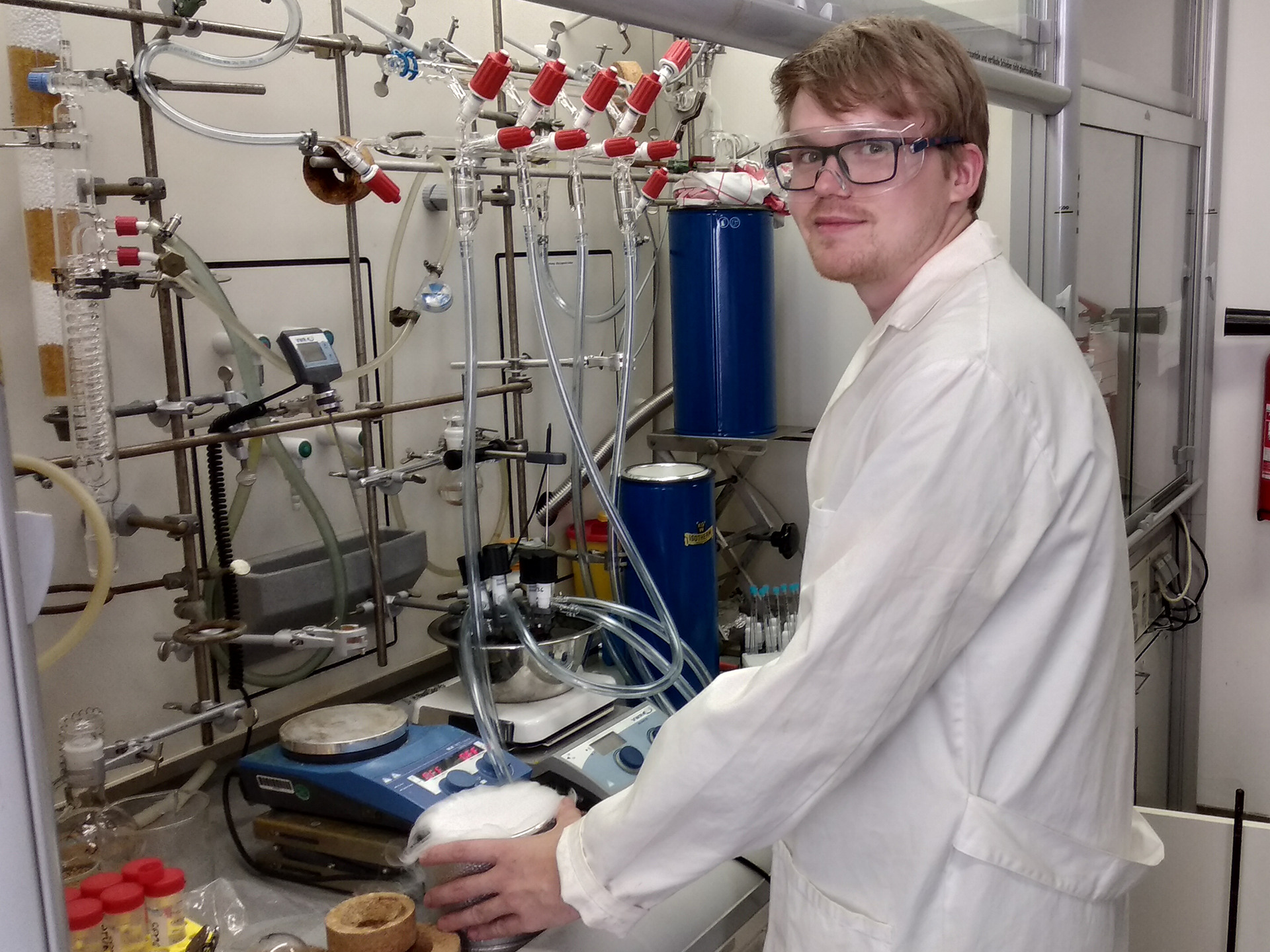|
|

|
|
Prof. Dr. habil. Hans Börner
| Phone: |
+49 (0)30 2093-7348 |
| Fax: |
+49 (0)30 2093-7500 |
Email
|
|
|
|
|
|
|
|
Contact Us |
|
|
|
Laboratory for Organic Synthesis of Functional Systems
Department of Chemistry
Humboldt-Universität zu Berlin
Brook-Taylor-Str. 2
12489 Berlin
Germany
Sekretariat
Phone: +49 (0)30 2093-7349
Fax: +49 (0)30 2093-7215
Room: 0'144
Email
office.functional-systems hu-berlin.de |
|
|
|
|
|
|
Group Members
Stefan Peplau
Graduate Student
Group of Prof. Börner
Department of Chemistry
Humboldt-Universität zu Berlin
Brook-Taylor-Str. 2, 12489 Berlin
Lab: 1'124
Phone: +49 (0)30 2093-7527
Email: Stefan.Peplau.1 hu-berlin.de
|

|
|
Curriculum Vitae
|
| 1990 |
born in Lutherstadt Wittenberg, Germany |
| 10/2011 - 09/2017 |
Chemistry studies at Humboldt-Universität zu Berlin, Germany |
| 06/2014 - 02/2015 |
Bachelor research thesis at Humboldt-Universität zu Berlin, Germany, under the guidance of Prof. Thomas Braun |
| 01/2017 - 09/2017 |
Master research thesis at Humboldt-Universität zu Berlin, Germany, under the guidance of Prof. Hans G. Börner |
| Since 10/2017 |
PhD position at Humboldt-Universität zu Berlin, Germany, under the guidance of Prof. Hans G. Börner |
|
|
Research Topic
|
Preparation of Sequence-Controlled Polymers using Traceless Protecting Groups:
The preparation of alternating copolymers mostly relies on strongly differing electron densities of the monomers, thereby severely limiting the possible combinations of monomers with which these copolymers can be synthesized. To circumvent this limitation we present a novel strategy for the synthesis of alternating copolymers, in which commercially available monomers are copolymerized with sterically hindered, non-homopolymerizable derivates of common monomers. Three promising monomers
were synthesized and their free-radical homopolymerization and copolymerization with styrene, methyl methacrylate and methyl acrylate was investigated. The resulting copolymers were characterised by NMR spectroscopy, MALDI-ToF MS and GPC. It could be shown that these sterically hindered monomers can be copolymerized with common monomers, but that the efficiency is determined by electronic and steric effects. When using large excesses of the sterically hindered monomer it is possible to obtain the desired alternating copolymers. The bulky protecting groups can be removed to create highly alternating copolymers of monomers which would not typically yield such monomer sequences. This strategy can be used to investigate the influence of monomer sequence on the properties of the polymers and to access highly functional materials. Moreover, the TMS- and Bpin-protecting groups allow a direct modification on the polymer backbone in a post-polymerization functionalization.
|
|
|